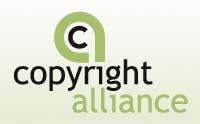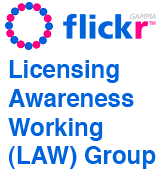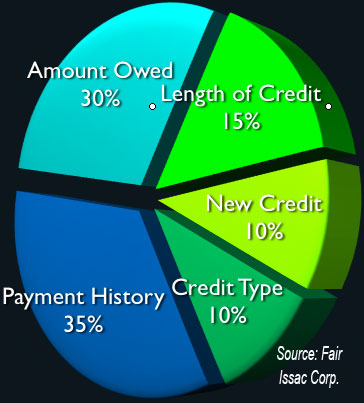Copyright Alliance
 We see ourselves as the good guys, the Rebel Alliance if you will. In the beginning, as with Lucas' fictional rag-tag group who "realized the Empire had absolutely no regard to the rights, or even the lives, of its citizens...", and to Peter Jackson's interpretation of a petite and unwilling leader who fought against "dark forces gathering to the west...", both legions, in the end, won.
We see ourselves as the good guys, the Rebel Alliance if you will. In the beginning, as with Lucas' fictional rag-tag group who "realized the Empire had absolutely no regard to the rights, or even the lives, of its citizens...", and to Peter Jackson's interpretation of a petite and unwilling leader who fought against "dark forces gathering to the west...", both legions, in the end, won.
Enter The Copyright Alliance, a better organized and financed group of organizations with the single aim of resisting the attempts to overthrow the constitutionally endowed rights for creators to possess, for a limited period of time, a monopoly of their creations. Those dark forces are the populus who runs fast and loose with people's rights.
At their announcement of the formalization, Thursday May 17th, James Gibson, University of Richmond Law Professor, cited the example of the many of us who exceed the speed limit. When we do, we break the law, and as with that, when we are caught, we pay the price, he posited. Many infringers, like speeders, see only the infringement as risky if caught, and then, without registration, there is no true punishment, as the recoverable is almost always severely limited, and so, speeders and infringers prevail. So much so, that people seen driving only the speed limit are looked at as antiquated - the grannies of the road - caught in a time warp of reality, where speeding, and, analagously, infringing, is just de rigueur.
Most people who have driven through Georgia, for example, know that you drive 55mph, not 56. Those Georgia troopers enforce the speed limit to the letter. In New York City, everyone knows, "don't block the box", and drive long enough in your own community, you know where the speed traps are. So too, should potential infringers respect the laws - and rights - of those who are the creators.
The Copyright Alliance is working to ensure creators rights are protected. But the Dark Forces to the West are growing, establishing a front, and seeking organizations to chip away at the methodoligies used to protect the artist's right to restrict uses of their works. They have sought to push forward broad-reaching Orphan Works legislation. Many agree that some well thought out version of Orphan Works will be the solution to the critical preservation needs of archivists looking to save images and movies that are being lost to the degradation that occurs over time. That photos that are found in a shoebox at a garage sale might have limited commercial value or intention to commercially be exploited. Yet, blanket protections afforded across the board are what's on the table, and that's just not fair.
Consider that copyright is afforded the citizenry in the first 1,600 words of the Constitution. Consider then, that issues like gun rights, slavery, and equal rights for women were things that were missing and needed to be fixed. The framers considered copyright so important that it was integral to the initial document, yet other important issues were forgotten. Try, instead, dismissing copyright as irrelevant, suggesting that slavery or equal rights for women, are irrelevant. Those dismissals, as with copyright, also are offensive to me.
Among those penning articles about the group are Variety, CNET, Reuters, and Broadcasting & Cable.
You must fight for your rights as a creative. Stand up and be counted. Engage in the dialog and debate. Recognize too, that, where you're reading this not as a US citizen, but rather, around the world, that the world is watching. How we treat copyright can become cracks in the copyright of your own countries.
Please post your comments by clicking the link below. If you've got questions, please pose them in our Photo Business Forum Flickr Group Discussion Threads.
 Honestly, ask yourself - how long do you think it would take for you to review assignment images, and delete outtakes? Assume, for a moment, you are shooting RAW, on a Canon 1Ds Mark II, and you are generating 19MB files. That's 53 images. How long would it take for you to do the delete? A few minutes? With 300GB drives costing around $150 or so, that's about $0.50 per GB, or $1 per GB, properly redundant. It's cheaper to not delete the files, and simply give them a ZERO star rating in your archives. The time involved in either paying someone, or the loss of your own time doing so, just is not worth it. Someday, you may be, for whatever reason, wanting those files. If your camera is generating smaller RAW files, then it will take even longer.
Honestly, ask yourself - how long do you think it would take for you to review assignment images, and delete outtakes? Assume, for a moment, you are shooting RAW, on a Canon 1Ds Mark II, and you are generating 19MB files. That's 53 images. How long would it take for you to do the delete? A few minutes? With 300GB drives costing around $150 or so, that's about $0.50 per GB, or $1 per GB, properly redundant. It's cheaper to not delete the files, and simply give them a ZERO star rating in your archives. The time involved in either paying someone, or the loss of your own time doing so, just is not worth it. Someday, you may be, for whatever reason, wanting those files. If your camera is generating smaller RAW files, then it will take even longer. Over at
Over at 
 If every time you speak to a prospective client, you capitulate on demands, you deserve the bad deal you get. Last week, we had a client experience were we sent them an estimate with our standard limited rights package. First, they called, wanting to limit re-use, with the stated objective that the subjects didn't want to end up on my website, or as stock. Ok, I can work with that. Then they wanted a broader rights package, then they wanted 10 years' use, then unlimited. Then, when we outlined the additional fees that would apply, they balked, wanting to pay the original fees for the broadest of uses. Then they opted for just a five year package, but wanted, again, not to pay any additional fees. Then when we stuck to our guns, they started in with "is that the best you can do?", to which I responded, "yes", and stopped talking. Then they tried the "we are expanding in DC, and will need photography in the future, and want to be able to use you, and want to know, is this the best you can do for us?" I thought to myself - did I just hear an echo? "Yes, this is the best I can do. You've expanded the rights package, and, as such, the fees increase, that's only fair." "Ok, fine", was her response, and the deal was done.
If every time you speak to a prospective client, you capitulate on demands, you deserve the bad deal you get. Last week, we had a client experience were we sent them an estimate with our standard limited rights package. First, they called, wanting to limit re-use, with the stated objective that the subjects didn't want to end up on my website, or as stock. Ok, I can work with that. Then they wanted a broader rights package, then they wanted 10 years' use, then unlimited. Then, when we outlined the additional fees that would apply, they balked, wanting to pay the original fees for the broadest of uses. Then they opted for just a five year package, but wanted, again, not to pay any additional fees. Then when we stuck to our guns, they started in with "is that the best you can do?", to which I responded, "yes", and stopped talking. Then they tried the "we are expanding in DC, and will need photography in the future, and want to be able to use you, and want to know, is this the best you can do for us?" I thought to myself - did I just hear an echo? "Yes, this is the best I can do. You've expanded the rights package, and, as such, the fees increase, that's only fair." "Ok, fine", was her response, and the deal was done. I found myself sitting at a luncheon, and several of the Nikon execs and I were discussing products, and their evolution. I queried one of the Nikon folks seated at the table, who shared with me that he's responsible for handling the consumer products for Nikon. I responded that I was duely impressed with the wireless capability of the point and shoots they were using at the PhotoPlus Expo party back in October. He then told me about the latest - the S50C, which has wireless built in too, and direct-transmits to Flickr. I said "well, my wife is currently shooting with a film point and shoot, and she's been insisting we get a digital point and shoot. He then offered to take my right down to J&R to get one. I said "no, thanks, I'll get it from Jeff Snyder at Penn Camera if I do. If I went to J&R, I'd certainly hear about it from him."
I found myself sitting at a luncheon, and several of the Nikon execs and I were discussing products, and their evolution. I queried one of the Nikon folks seated at the table, who shared with me that he's responsible for handling the consumer products for Nikon. I responded that I was duely impressed with the wireless capability of the point and shoots they were using at the PhotoPlus Expo party back in October. He then told me about the latest - the S50C, which has wireless built in too, and direct-transmits to Flickr. I said "well, my wife is currently shooting with a film point and shoot, and she's been insisting we get a digital point and shoot. He then offered to take my right down to J&R to get one. I said "no, thanks, I'll get it from Jeff Snyder at Penn Camera if I do. If I went to J&R, I'd certainly hear about it from him." Recently, I was having breakfast on a travel project with a colleague of mine. He asked of me "what's the big deal with Flickr? I don't get it. I don't see the benefit of being there, of taking the time to be on it. It's just for people to share their family photos, right? What does it help we professionals?" I reponded, telling him that Flickr is not just that, and that friends, prospective art directors, and so on, can make you a "friend", and then, whenever you post new photos, they turn up on their Flickr page. It's friends and these prospective clients are choosing to want to be alerted when you add photos, and it's all automatic and shows up on their own page straightaway! Further, properly tagged (think Keywords, Check
Recently, I was having breakfast on a travel project with a colleague of mine. He asked of me "what's the big deal with Flickr? I don't get it. I don't see the benefit of being there, of taking the time to be on it. It's just for people to share their family photos, right? What does it help we professionals?" I reponded, telling him that Flickr is not just that, and that friends, prospective art directors, and so on, can make you a "friend", and then, whenever you post new photos, they turn up on their Flickr page. It's friends and these prospective clients are choosing to want to be alerted when you add photos, and it's all automatic and shows up on their own page straightaway! Further, properly tagged (think Keywords, Check  A wrinkle occured when the language was presented for the Microsoft Future Pro Photographer contest was announced, whereby a "cut & paste" error was made by a paralegal drafting the contest rules, which read:
A wrinkle occured when the language was presented for the Microsoft Future Pro Photographer contest was announced, whereby a "cut & paste" error was made by a paralegal drafting the contest rules, which read: So, just how do these sharks calculate what your percentage rate is? Well, the higher the risk you won't pay them back, the higher the interest rate. The folks at Fair Issac Corporation (
So, just how do these sharks calculate what your percentage rate is? Well, the higher the risk you won't pay them back, the higher the interest rate. The folks at Fair Issac Corporation ( What do you do when you've been disgraced from your job altering 79 photographs (revealed so far), and are fired? Turn to what was your hobby - Storm Chasing. So was the path that disgraced Toledo Blade staff photographer Allan Detrich followed as he, the phoenix, temporarily rose from the ashes when he found himself in the middle of the aftermath of the Kansas tornado disaster. (oh, and note the "Courtesy of" photo credit that appeared on the front page of CNN.com)
What do you do when you've been disgraced from your job altering 79 photographs (revealed so far), and are fired? Turn to what was your hobby - Storm Chasing. So was the path that disgraced Toledo Blade staff photographer Allan Detrich followed as he, the phoenix, temporarily rose from the ashes when he found himself in the middle of the aftermath of the Kansas tornado disaster. (oh, and note the "Courtesy of" photo credit that appeared on the front page of CNN.com)